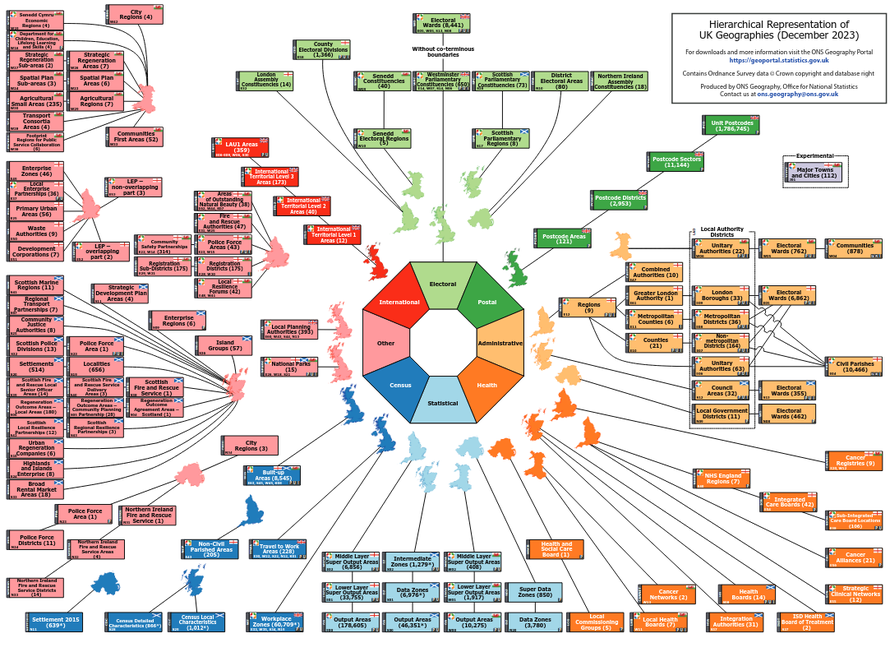The rest of the state

From our favoriate PDF: Hierarchical Representation of UK Geographies
We’ve added a feature to WhoCanIVoteFor.co.uk that tells you about all the roles and responsibilities of the various people and organisations that represent you and your area.
Over the last few weeks,all eyes have been focused on Westminster politics. Huge issues that will shape the country for years to come have been raised, debated and sometimes fallen into.
No doubt the new government will capture a lot of attention over the next few weeks, but the focus on Westminster can cause us to overlook, well, the rest of the state.
There has been much attention given to the issue of devolution in the last few years. Both the outgoing Conservative and incoming Labour governments pledged to expand devolution in their manifestos.
A large number of issues that affect people day to day are the responsibility of devolved power of one sort or another. This is most obvious in Scotland, Wales and Northern Ireland, but England too has deep and complex layers of local government.
All of us have at least one local council. Some of us have a directly elected Mayor. Most of England and Wales have police and crime commissioners.
Why? What do they do? How much money do they have? How do they influence your life and surroundings? How do they interact with each other?
It’s likely that even your most politically engaged friends can’t answer all of these questions with confidence.
We think we might be able to help — or at least we’re experimenting with what it might take to help — answer these questions.
WhoCanIVoteFor.co.uk gets tens of thousands of visitors each month outside of election periods. Previously we’ve only been able to tell users that they don’t have an election — not a very interesting message.
That’s why we’ve just added a new postcode lookup to WhoCanIVoteFor.co.uk. It tells you about all the layers of elected government in your area, including roles, responsibilities and representatives.
At the moment the tool is very basic. We hope to iterate over the next few years into something that meets the needs of our users in many different ways. For example, we plan to add contact details for councillors, previous electoral results, information on upcoming boundary changes, among other things. There is clearly a lot more to do, but we’re starting small and learning what’s needed. At the moment we don’t account for changes to political party affiliation after a person is elected. We also don’t yet know how to deal with multi-seat wards that haven’t elected all their representatives at once.
This project has been made possible by a grant from the Joseph Rowntree Charitable Trust who funded us to help improve the understanding of local government and the role of their councillors.
We hope to do some of this work in partnership with mySociety, who have started writing guides on different layers of government.
Please give it a go, and get in touch with any feedback or comments.